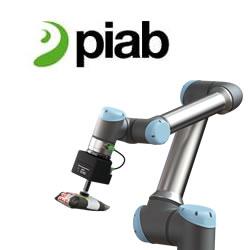Bipedal Robotics Researcher Supports Multi-University Effort to Advance Cyber-Physical Systems
Dr. Aaron Ames, assistant professor in the Department of Mechanical Engineering at Texas A&M University, is part of multi-university team that has received a $4 million grant from the National Science Foundation (NSF) to support research into cyber-physical systems (CPS).
The project, "Correct-by-Design Control Software Synthesis for Highly Dynamic Systems," is a collaboration of researchers from the University of Michigan, the University of California, Los Angeles, Texas A&M and Carnegie Mellon University.
"We are proud of Dr. Ames and this multi-university effort to advance cyber-physical systems," said John Sharp, chancellor of The Texas A&M University System. "The game-changing effects of this type discovery will be felt not only by our citizens in the state of Texas, but in the entire country and eventually, the world. That is the role and responsibility of tier 1 research schools."
The aim of this four-year project is to streamline the production of CPS by developing sophisticated methods for synthesizing control software for engineered systems. The objective is to make it easier to design next-generation CPS so that minimal adjustment will be required during subsequent development and implementation processes. This work will have broad applications to many existing systems, including automobiles, prostheses and manufacturing.
"Our work is concerned with control theoretic methods that will allow advanced techniques from computer science to work on real-world systems where fast reactions are absolutely crucial," said Jessy Grizzle, professor of engineering at the University of Michigan and lead investigator on the collaboration.
"In the end, the most important aspect is safety," Grizzle said. "These software systems are going on cars that are automatically making steering and braking decisions for you or on robots that will be traipsing around rubble, and we need to have super high confidence in the correctness of the software that is operating them. This work aims to increase the likelihood that the software will do what it's supposed to do, and safely."
Ames said, "The formal natural of the work is its most exciting aspect. It is through this formal understanding of complex and dynamic systems that we can design software that will allow them to perform beyond their current capabilities. This performance will come with guarantees that the system will always perform correctly, ensuring safety together with these increase capabilities."
Ames is the head of A&M Bipedal Experimental Robotics (AMBER) Lab, which focuses on the development of novel theoretical methods related to the control of highly dynamic robotic systems, along with the realization of these formal results on experimental robotic platforms such as custom-built bipedal robots.
In Ames' part of the project, funded for $1.1 million, he will utilize his expertise in the low-level control design based upon mathematically rigorous low-dimensional representations of highly dynamic systems to guide the development of discrete abstractions that will allow for the synthesis of control software that is guaranteed to be correct. These formal ideas will be developed, and tested experimentally, in the context of application domains ranging from highly dynamic maneuvers in automobiles to dynamic locomotion in bipedal robots.
"The team working on this project is very strong," Ames said, "with expertise ranging from low-level controller design for highly dynamic systems to discrete abstractions and software synthesis. This cross-disciplinary team will allow for the new avenues for unification of traditionally disparate ideas, and I believe the results will be very exciting as a result."
CPS technologies employ sensors, processors and actuators to enable computers to perform dynamically in the physical world, providing people with useful real-time information. They are used in cruise control mechanisms in passenger cars, auto-pilot systems in aircraft, control mechanisms in prosthetics, and futuristic robotic devices for search and rescue.
CPSs also are core to the functioning of medical devices, energy-efficient structures, advanced manufacturing and modern agriculture.
"This investment in fundamental advances at the intersection of cyber and physical systems will pay huge dividends for our nation," said Farnam Jahanian, NSF's assistant director for Computer and Information Science and Engineering. "Advances in CPS hold the potential to reshape our world with more responsive, precise and efficient systems that augment human capabilities, work in dangerous or inaccessible environments, provide large-scale, distributed coordination and enhance societal well-being."
http://engineering.tamu.edu/
Featured Product

The piCOBOT Electric vacuum generator
Fully electric, slim design and absence of air-tubing and cabling. The new piCOBOT® Electric heads towards another success for Piab's piCOBOT® program. A secondary effect of these achievements is the absence of entangling air tubing and cabling. It simplifies the installation, and as the new piCOBOT® Electric only needs a single connection on the cobot arm, the clean set-up allows a completely unrestricted movement. The new piCOBOT® Electric package will contain plug & play software to fit UR e-series cobots, but many other useful adaptations will be introduced in the coming year
